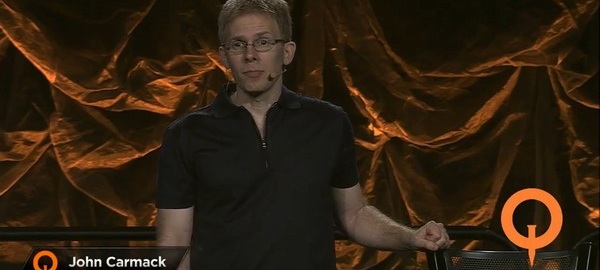Today marks the end of an era for both id Software and John Carmack, as the legendary programmer has left id Software (for good this time). Carmack joined the Oculus Rift team back in August and wanted to remain a technical advisor id Software, however that did not work out. As a result of that, Carmack has left id Software, the company that he co-founded alongside Tom Hall and John Romero.
As id Software’s studio director Tim Willits told IGN:
“John Carmack, who has become interested in focusing on things other than game development at id, has resigned from the studio. John’s work on id Tech 5 and the technology for the current development work at id is complete, and his departure will not affect any current projects. We are fortunate to have a brilliant group of programmers at id who worked with John and will carry on id’s tradition of making great games with cutting-edge technology. As colleagues of John for many years, we wish him well.”
So, farewell John and thanks for your contribution. PC gaming would not be up to what it is today if it wasn’t you and your groundbreaking engines (up until Doom 3 with its spectacular lighting and stencil shadow techniques).
Question now is whether John will still be present at future QuakeCon events. It’s no secret that we enjoyed his speeches and we are pretty sure that a lot of PC gamers were looking forward to hear more about Carmack’s future plan at QuakeCon 2014 (still ways off but that’s irrelevant).
Let’s hope that Bethesda will keep John’s speeches/keynotes?
And that is that.
Kudos to our reader ‘John Vanitsidis’ for informing us.

John is the founder and Editor in Chief at DSOGaming. He is a PC gaming fan and highly supports the modding and indie communities. Before creating DSOGaming, John worked on numerous gaming websites. While he is a die-hard PC gamer, his gaming roots can be found on consoles. John loved – and still does – the 16-bit consoles, and considers SNES to be one of the best consoles. Still, the PC platform won him over consoles. That was mainly due to 3DFX and its iconic dedicated 3D accelerator graphics card, Voodoo 2. John has also written a higher degree thesis on the “The Evolution of PC graphics cards.”
Contact: Email

